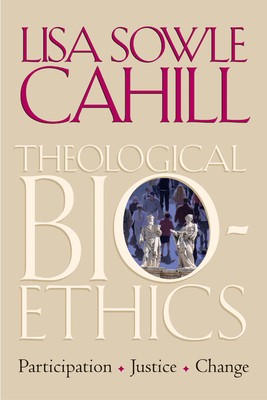
- We will send in 10–14 business days.
- Author: Lisa Sowle Cahill
- Publisher: Georgetown University Press
- ISBN-10: 1589010752
- ISBN-13: 9781589010758
- Format: 15.5 x 22.7 x 1.9 cm, minkšti viršeliai
- Language: English
- SAVE -10% with code: EXTRA
Reviews
Description
As bioethics has evolved, those traditions whose thinkers had dominated the field in the last 1960s and early 1970s--progressive Catholics and Protestants and Jews--have struggled to be heard, and in some cases have been pushed to the edge of irrelevance. A seemingly neutral political liberalism, with its commitment to the free market and scientific progress, has pervaded the public sphere, creating a deep suspicion of those bringing religious values to bear on questions of public policy. Cahill wants to change that. As a theological ethicist and progressive Catholic she does not want to cede a "religious perspective" to evangelical Christians and the pro-life movement, nor does she want to submit to the gospel of political liberalism that pushes individual autonomy as holy writ. To this end she advocates a "participatory bioethics," that is, a call for progressive religious folk to reclaim the best of their traditions and engage political forces at the community and national level. What's the payoff? Cahill is clear: justice in access to health care must be the number one priority. But there is more. A participatory bioethics must go beyond decrying injustice, beyond a prophetic stance against commercialization, beyond painting a vision of a more egalitarian future. Participatory bioethics must also account for and take part in a global social network of mobilization for change. Participatory bioethics must seek out those in solidarity, those in common calling, who are working to create a more just social and political and economic system. This is a mature, sophisticated, and highly ambitious work that could change the fields of bioethics and theological ethics.
EXTRA 10 % discount with code: EXTRA
The promotion ends in 22d.07:35:02
The discount code is valid when purchasing from 10 €. Discounts do not stack.
- Author: Lisa Sowle Cahill
- Publisher: Georgetown University Press
- ISBN-10: 1589010752
- ISBN-13: 9781589010758
- Format: 15.5 x 22.7 x 1.9 cm, minkšti viršeliai
- Language: English English
As bioethics has evolved, those traditions whose thinkers had dominated the field in the last 1960s and early 1970s--progressive Catholics and Protestants and Jews--have struggled to be heard, and in some cases have been pushed to the edge of irrelevance. A seemingly neutral political liberalism, with its commitment to the free market and scientific progress, has pervaded the public sphere, creating a deep suspicion of those bringing religious values to bear on questions of public policy. Cahill wants to change that. As a theological ethicist and progressive Catholic she does not want to cede a "religious perspective" to evangelical Christians and the pro-life movement, nor does she want to submit to the gospel of political liberalism that pushes individual autonomy as holy writ. To this end she advocates a "participatory bioethics," that is, a call for progressive religious folk to reclaim the best of their traditions and engage political forces at the community and national level. What's the payoff? Cahill is clear: justice in access to health care must be the number one priority. But there is more. A participatory bioethics must go beyond decrying injustice, beyond a prophetic stance against commercialization, beyond painting a vision of a more egalitarian future. Participatory bioethics must also account for and take part in a global social network of mobilization for change. Participatory bioethics must seek out those in solidarity, those in common calling, who are working to create a more just social and political and economic system. This is a mature, sophisticated, and highly ambitious work that could change the fields of bioethics and theological ethics.


Reviews